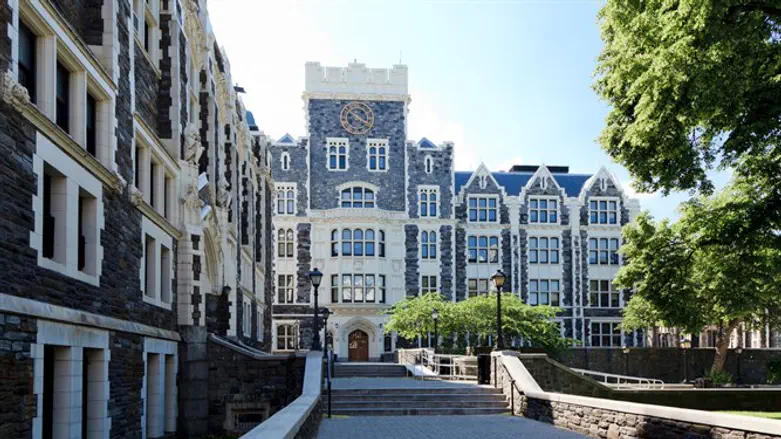
On Monday, Alums for Campus Fairness (ACF), America’s unified alumni voice on issues of anti-Semitism, demonization of Israel, and bigotry, released the findings of a survey of Jewish college students and recent alums on campus anti-Semitism, conducted between March 25 and June 14, 2021.
The survey results, compiled into a comprehensive report, include shocking findings collected from more than 500 respondents comprised of 312 enrolled students and 194 alumni of varying Jewish affiliations from across the country.
The findings showed that nearly 100% of respondents said anti-Semitism is/was a problem on their campus, with current students more likely to call it a “major” problem and grads a “minor” one. Ninety-five percent of respondents identified anti-Semitism as a problem on US college campuses, with three out of four describing it as a “very serious problem.”
In addition, 79% of respondents had experienced or heard firsthand about another student making offensive or threatening anti-Semitic comments in person, and 69% of students and grads say they have avoided certain places, events, or situations at school because they are Jewish.
More than half of the respondents received or heard firsthand offensive or threatening anti-Semitic comments from faculty or university employees, and nearly half of current students say anti-Semitism is getting worse on their campus. Forty-four percent of respondents had experienced or heard firsthand about being physically threatened because they identify as Jewish.
“These findings illuminate the troubling reality on US campuses—anti-Semitism is increasingly a pernicious threat, with Jewish students under siege,” ACF Executive Director Avi D. Gordon said.
“Today’s universities take great pains to embrace and protect students from all races, religions, and backgrounds. But Jewish students are often left to fend for themselves against discrimination. Administrators must take immediate steps to remedy this situation, and alumni should work with administrators, students, and allies alike to rid their alma maters of hate,” Gordon added.
Survey respondents shared first-hand experiences with campus anti-Semitism. Personal anecdotes include cavalier Holocaust comparisons, Jewish stereotyping, and common anti-Semitic tropes, with administrative negligence consistently cited.
“I had a professor make a horribly offensive analogy about the Holocaust. When I told her it was offensive, she gaslit me and said if I was so sensitive, I should find another career,” one student wrote, adding, “there has been rising anti-Israel activity on-campus. At the same time, we have found swastikas and hate-speech from alt-right groups on campus.”
Another common concern expressed by respondents is that campus anti-Semitism is only getting worse. “UConn has experienced seven anti-Semitic incidents in the year and three during Passover alone. Each act has gotten bigger and bolder, and the students have become frightened,” one student reported.
ACF’s report, A Growing Threat: Antisemitism on College Campuses, provides recommendations to stem the growth of anti-Semitism and create a safer environment for Jewish students. The report calls on university administrators to make concerted efforts to understand the challenges facing Jewish students, promptly respond to anti-Semitic incidents, and adopt the International Holocaust Remembrance Alliance (IHRA) working definition of anti-Semitism. In addition, the report urges Jewish students and alumni to work together to proactively create campuses free of bigotry.
ACF partnered with Kivvit to develop the survey and worked with Jewish on Campus to recruit respondents.